Jillion Potter is your favorite character actor in every movie you love. But she’s also the subtle lead in that heartwarming indie flick which left you smiling. She’s the stunt double. The director and the producer. She’s the extra that steals the scene.
She plays all the parts because she can.
She’s the skateboarding teen — a loner with an independent mind and a yearning to belong. She's the latchkey kid, bouncing from mom’s house to dad’s. She’s the outcast, until she isn’t, because she joins the basketball team to fit in and falls in love with the camaraderie.
She's the lost freshman at college, until the rugby girls finally broke her. She's the self-professed “tall, skinny redhead” who showed up at tryouts knowing nothing, and learns she likes to tackle. So much so, she says “I might have been a little unhinged.”
Her path must have been born in the movies, in the dreams of a solitary screenwriter; in the wild visions of the next Quentin Tarantino. Because Jillion just kept doing, just kept beating the odds, just kept believing she was worthy.
And then one day, she found herself walking out onto the rugby pitch at the 2016 Rio Olympic Games with Team USA on her chest. It was the pinnacle of fulfillment.
And that, of course, came after she broke her neck. And beat back cancer. For the first time.
As it turned out, Jillion was the only person who could star in her own movie.
She was born in Austin circa 1986 and grew up in the Texas Hill Country. As we chat by video call on a warm summer morning, she mentions the town of Kerrville, home to the devastating floods of recent weeks.
“I spent a lot of my time in Kerrville, so the immediate flooding that’s happening now is really heartbreaking because that’s where I spent a lot of my years growing up, from first grade all the way to junior year in high school.”
Jillion has a twin brother, Paul, and an older sister, Molly, all raised with a working-class ethos and the manners to accompany it.
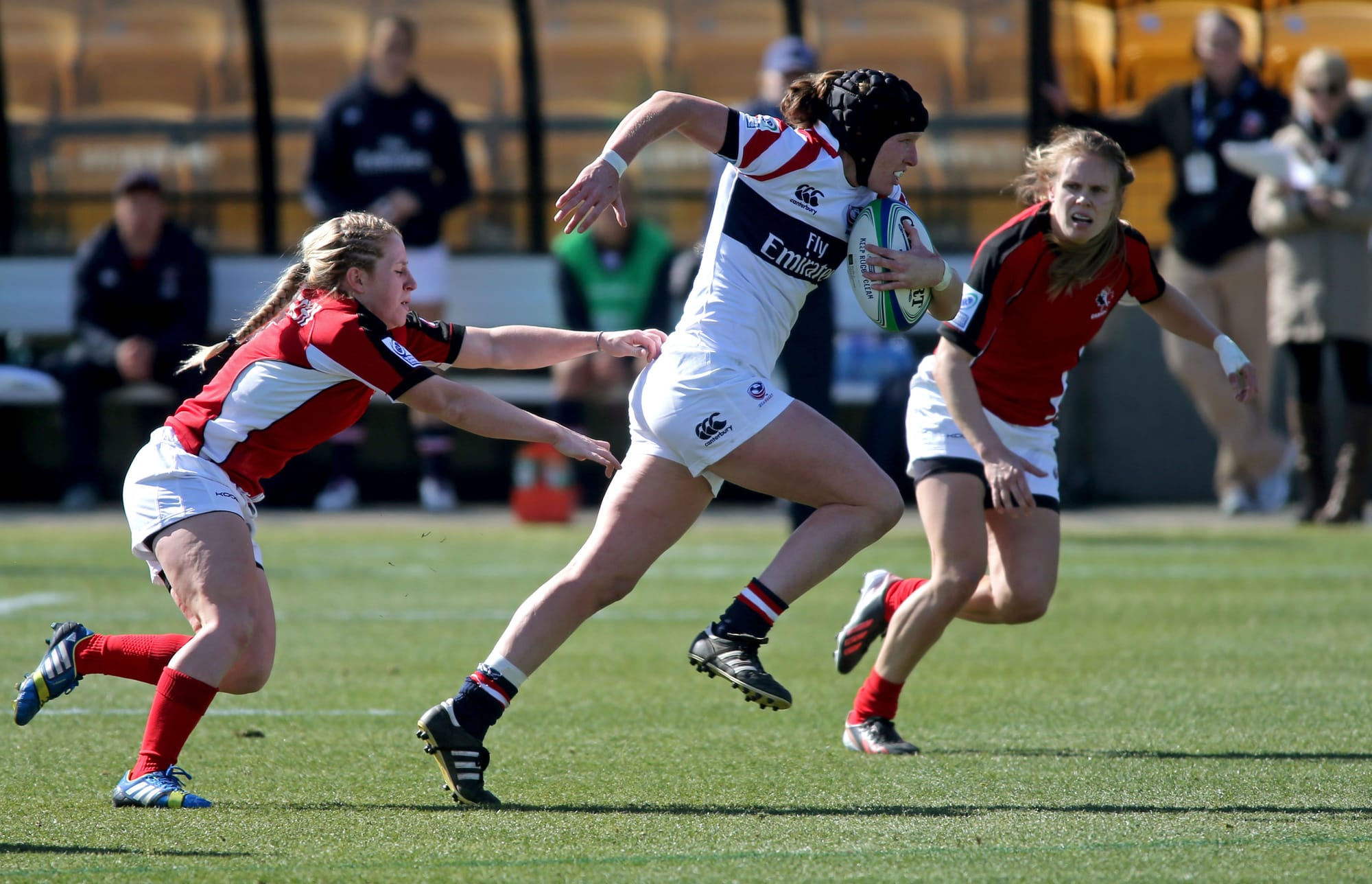
“We grew up with the premise of, go to school, come home, do your chores, do your homework, and then get out of the house until sundown. My brother and I would always go on little adventures that we would imagine or make up.”
One thing she learned early was the concept of movement. She wanted to keep going, keep playing, keep pushing herself. First, she found skateboarding, which satisfied a host of needs, including shaping her identity.
“I mean, I was a skateboarder, but I just didn't think that was a sport. It was like, just part of my personality.
“I think when you grow up skateboarding, it's a very individual sport. And of course, you're doing it with friends. And you might imagine a ramp, or you might imagine a trick or try to do stuff together collaboratively, but the execution is individual.”
And it was also the kind of thing she could do anywhere. Until she couldn’t.
“My family had moved to this apartment complex, and I didn't have anywhere to skate, you know? And then everyone in the apartment complex played basketball. And so I was like, ‘Oh, I guess this is what you do here.’ So I joined the basketball team, and it was mostly for fun. And I of course wanted to excel and be great, but, it was great to have a camaraderie, to have teammates to really learn how to work together.”
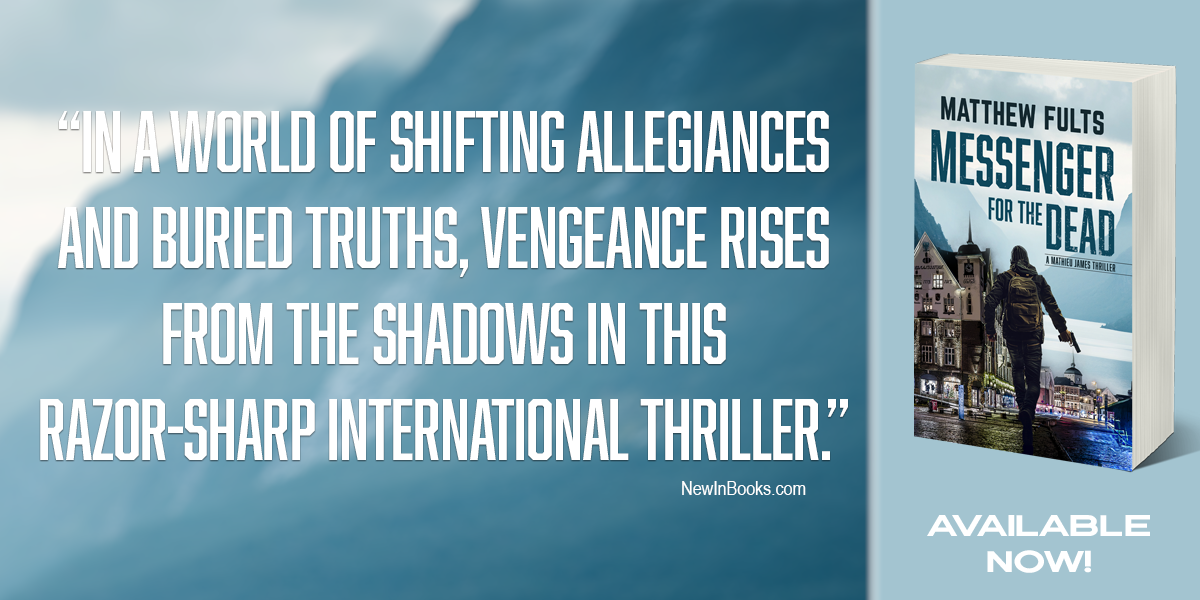
By the time seventh grade hit, she was playing organized ball. In high school, she made varsity as a freshman. She was having a blast, and had her eyes set on playing in college. Looking back, Jillion puts on her best movie star smile and says, “I remember when I was younger, I was like, ‘I will never play a sport like that.’”
Following her junior year, Jillion encountered a minor speed bump. She was considering a career in the Air Force, while also entertaining the idea of playing college ball. But she wound up moving to Albuquerque, New Mexico, to live with her mom.
And like every rising senior, there were choices to be made about one’s future. Jillion was grateful she had options. She could choose, something she learned from team sports.
“Being a part of team sports really saved my life in a lot of ways. The power of choice. Where we commit our time. I'm just really grateful I stepped into basketball when I did.”
Fate put Jillion at the University of New Mexico, thanks to a generous state-sponsored scholarship program for students who excel in academia. It didn’t take long for the athletic freshman to get noticed on campus. In fact, some might say it bordered on well-intentioned harassment.
“It was pretty spontaneous,” she says of the random overtures from the rugby players. “The first couple times I was like, ‘Listen, I don't even know what rugby is. I have no interest in playing.
“I must have been this walking billboard because that kept happening. And once the third time was over, I went home and told my mom, who obviously didn't know what rugby was either, but she very much believes in the power of the universe. And so she's like, ‘Listen, you have to go try out. You have to go do this.’
“I think if she knew what it was, she probably would say, ‘Don't go.’ But I went out and, at the time the practice was co-ed, so there was a bunch of men and women gathered in a circle, and I just walked over and said ‘Hi, my name is Jillion.’”
And there she was, the tall, skinny redhead, unsure of the rules and the tactics, thinking she was just out for a good time and some old-fashioned team vibes. She was oblivious to the club sport mentality of pay-to-play, let alone the idea of a Team USA.
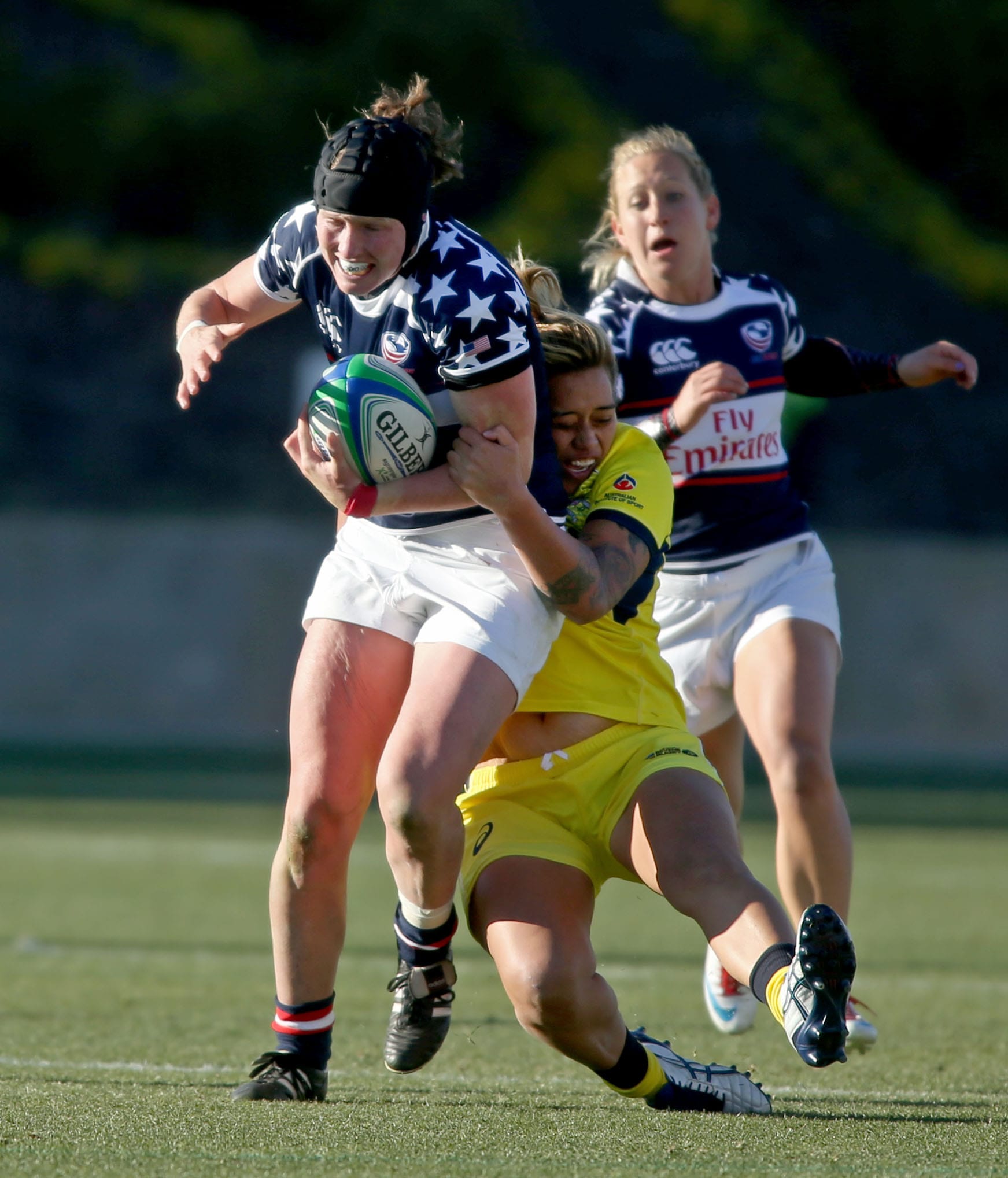
“I just joined the rugby team because it was fun. I liked to be a part of a team, you know? But I was uniquely good at tackling people. I grew up with my brother, we roughhoused all the time, and I was very physical. I could take a hard hit. Obviously with skateboarding, you fall a lot. You hit the pavement before you get back up. So having that physicality and contact was familiar to me.”
It turned out Jillion was a force of nature on the field. She was physical, to the point of taking too many penalties. She was eager to learn the rules, to study strategy and understand the flow of the game. She admits, “I had no idea how to play,” but it didn’t stop her. It fueled her to the point that her coach saw unlimited potential, and he relentlessly pitched her raw abilities to the U.S. U19 program.
“He just made them say yes. I certainly wasn’t on their radar, but I got an invite to this camp in Austin.”
Jillion arrived at camp as an afterthought. Her locker was in the training room, because there was nowhere else to put her. The team was making an exception for this rough and rowdy newcomer. Upon arrival, she learned the first day of camp was going to focus on tackling and fitness — her eyes light up even today thinking about it — so she knew the stage was hers.
“I’m like, ‘Yeah, I can do that. I can lay some people down.’ I was having a great time and I just don’t think they were ready for my tenacity and my physicality.
“But that camp was crazy because I remember being in a huddle and the coach was talking about strategy, and he's talking about the different lines on the field … he's going on and on about the 22 meter line.
“And I looked to this girl and I said, ‘What is the 22?’ And she's like, ‘Oh, it's this line right here. So every time we're behind this line, we're going to do what he says over here.’ I was really just drinking from the fire hose and with a big smile on my face.”
And then things took off. Within a year, she received an invite to the U23 camp in Blaine, Minnesota.
“And boy was that level different. I mean, these are much bigger women. They hit a lot harder, right? They knew the game. And I remember being sent home with like a fitness packet, like you need to lift weights and you need to do this running.
“And I hadn't lifted. So I had to learn how to lift weights, and do the best that I could. But at that time in college, when I first started playing rugby, I weighed 135 pounds.”
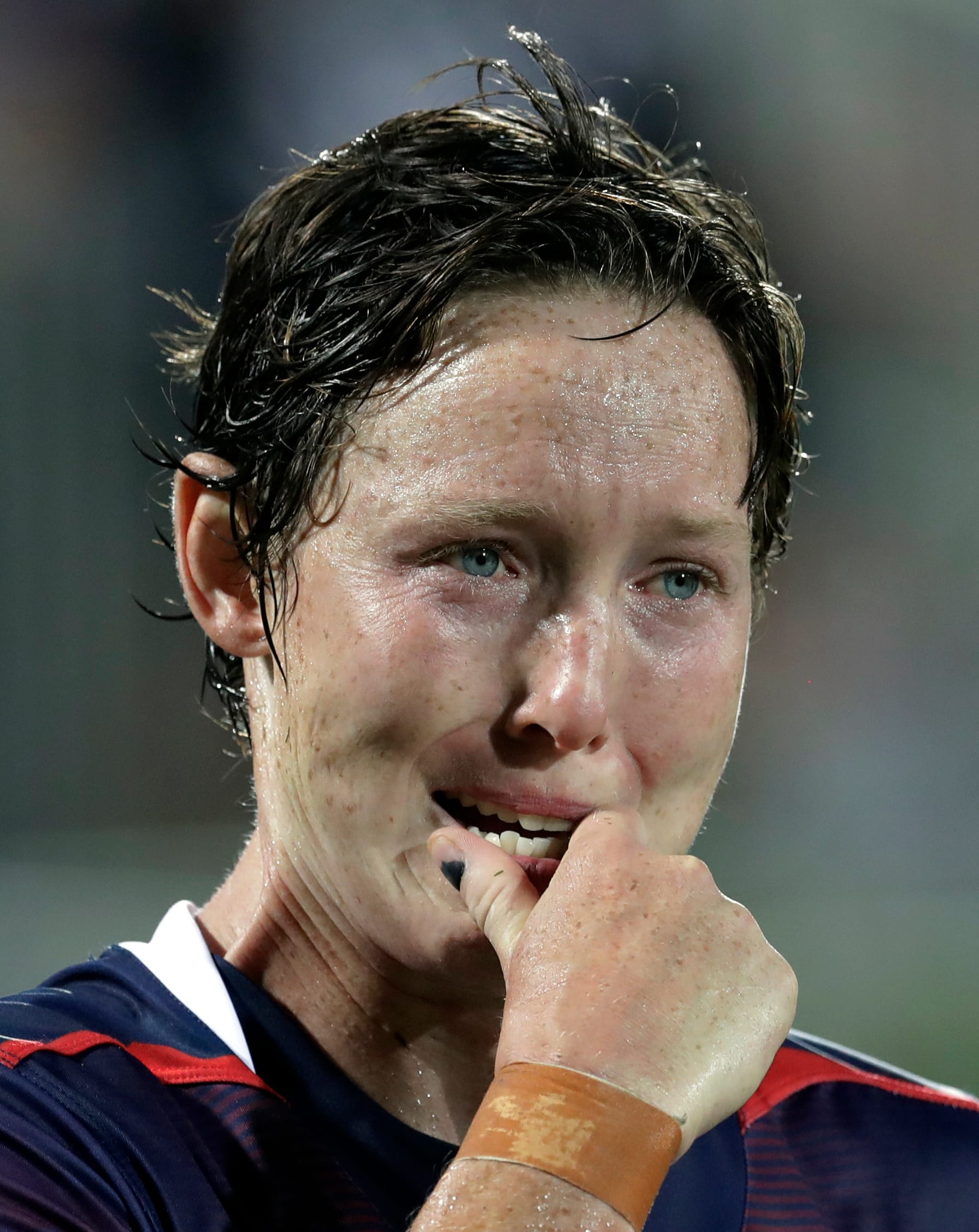
The Team USA staff told her to get bigger and stronger. She needed to add weight, learn to work out and return a bigger, stronger version of her already tenacious self. So Jillion accepted the challenge.
“I think the mentality back then was like, drink whole milk and eat a bunch of meat. And so I was like, ‘Okay, I'm going to go get a waitressing job in a steakhouse. It sounds so ridiculous. It is so ridiculous.
“But this is what I did. Every week I'm a drinking a gallon of whole milk and I'm going to work in a steakhouse.”
Crazy as it now seems, that job at Black Angus helped Jillion add 50 pounds of muscle over five years, completely transforming her five-foot-ten frame.
Hunger and raw physicality launched her career. Now, the mental part needed work. She studied tape. Learned the game. Climbed the developmental ladder of Team USA. In 2006 she was able to attend a World Cup match in Edmonton, Alberta, Canada. That further fueled her desire.
“I remember thinking, this is what I want to do.”
She graduated from the University of New Mexico in 2009 and joined a club team in Minnesota, where she worked as diligently as ever to hone the craft.
In 2010, prior to that year’s World Cup, the U.S. program sent her to play a couple of test matches against Canada. Her big break was imminent.
Literally.
During the match, in a confusing sequence of events, Jillion was tackled by two Canadian players.
“Somehow I landed on my stomach and my head went into a hyperflexion. And so my head was in this hyperflexed position and the weight of the Canadian players fell on top of my head.
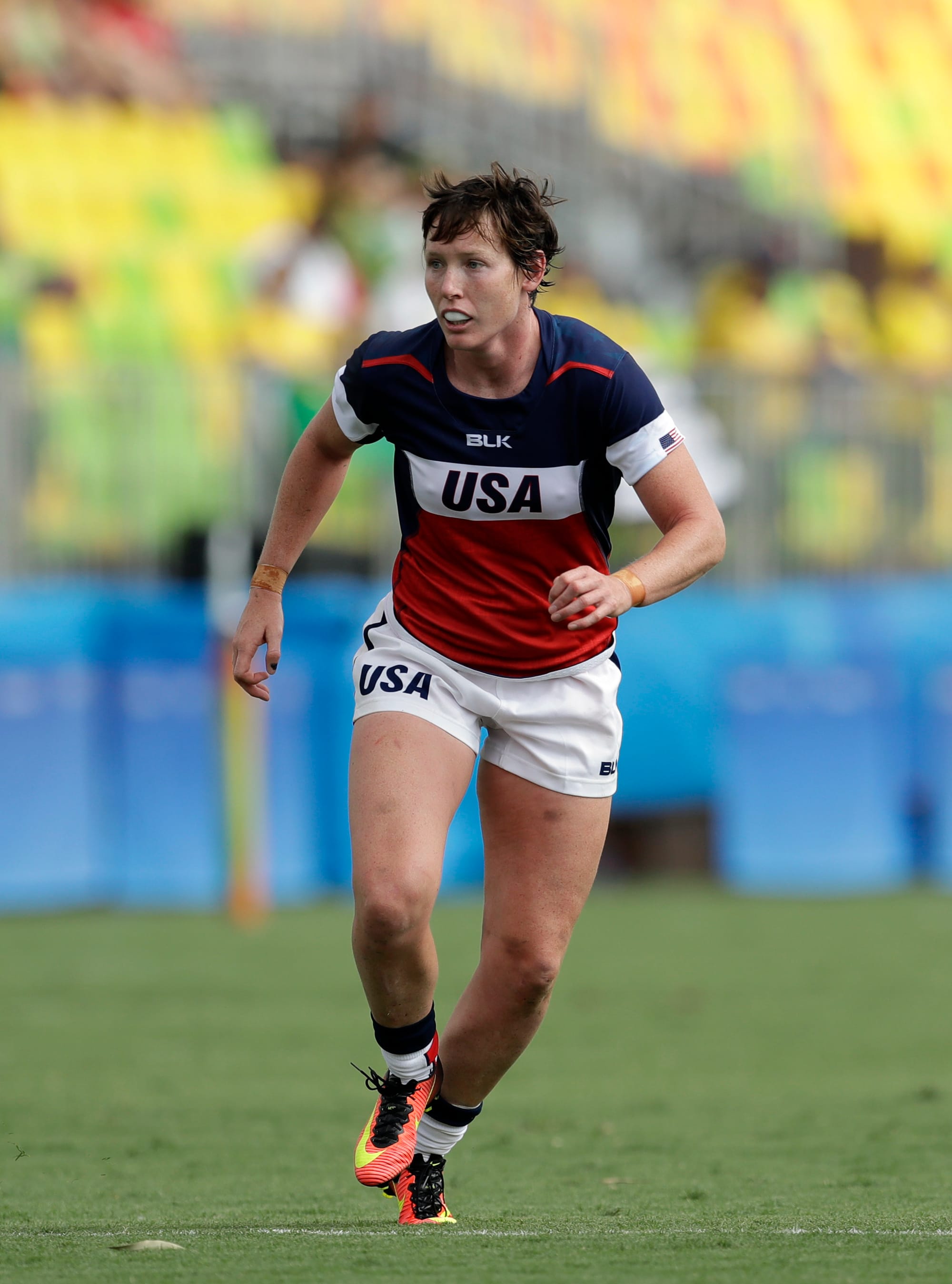
“And I remember hearing, like, pop, pop, pop, pop, pop. And I rolled over and I was like, ‘I can move. But I'm not moving.’ And my teammate Jamie Burke came over and she was like, ‘What happened?’ I said, ‘My neck, my neck, my neck. Jamie, something's wrong. And she held my neck. She stayed there with me.”
To this day, Jillion has refused to watch the film.
It was only 15 years ago, but the protocol applied to her injury wouldn’t fly today. Medical staff examined her on the field, testing nerve function, trying to make sure she was safe.
“They ended up standing me up, and as soon as I stood up, I was in the most pain I've been in at that time, and I almost collapsed. And then I started crying because I was in so much pain, and I walked across the field and I sat down on the sideline, and I watched the rest of the game.”
After the game she showered, got dressed and was driven to a hospital, where Canadian doctors did a CT scan and told her she’d never play rugby again. Her C1 was fractured, and her C4 and C5 were also a concern. They told her to fly home and get an MRI.
That took weeks.
“So one day I get this phone call from the doctor. ‘Whatever you do, don't take off the neck brace. Be careful in the car. You need to come to the hospital immediately.’”
When she arrived, they put up her film, which showed her entire C5 was displaced.
“I was like, ‘Oh my God.’ It scared me to death.”
If there was a comeback story to be made, Jillion was making it. After a year of physical therapy and recovery, she returned to play in September 2011. She says tackling now terrified her. She needed to learn how to protect herself, to trust her instincts and her body.
That came with time.
Time also delivered another chance at fate. In 2012, it was announced that Rugby Sevens would be added to the Olympics. Jillion was a Rugby Fifteens player. But she saw an opportunity, and pounced. She emailed the coach, introduced herself, and was offered an invite. She soon turned that into a contract.
The next two years rolled by quick. Following a move to the U.S. Olympic Training Center in Chula Vista, California, success followed. Rugby Sevens was medaling. The team was gelling and Jillion was adapting to the new style of play.
At the conclusion of the 2014 season, looking for a way to decompress after a grueling-yet-successful season, Jillion and her then-partner went on a trip to Alaska. Upon returning, she woke up with a lump under her jaw. She sees a doctor, who says it's nothing to worry about. Weeks later it’s still there, and getting larger. They encourage her to see an ear, nose and throat specialist, which adds more weeks to the waiting, and more time to worry. Finally, she gets an ultrasound, and her ailment is diagnosed as a tumor.
And then this: “But don't worry. It's benign. You don't smoke, you don't drink. You are healthy. You're very young.”

So Jillion turned her focus to the 2014 World Cup, an important precursor to the 2016 Olympics.
She played nearly every minute of the Paris event while feeling weighted by exhaustion the entire time. Meanwhile, the tumor had grown from the size of her thumbnail to the size of her hand.
After returning to the U.S., Jillion’s doctors finally operated. The tumor was wrapped around nerves, and was sent for a biopsy. The result was sarcoma, an aggressive form of soft tissue cancer.
“And I thought, ‘Oh, I have cancer.’ And I wasn’t even sure I believed it.”
Within a week, chemo started. By March of 2015 she was done with treatment. Declared cancer-free. Throughout it all, she was in the gym, training, doing her thing.
“From May to October, I did my best to return to the training center. And when I was ready, I called my coach and said, ‘Hi, I’m ready to come back,’”
In October, she returned to the team, eyes set on making the Rio Olympics.
“All that hardship aside, I did make the 2016 Olympic team and here's the thing,” she says, her eyes beginning to well. “That entire year when I was playing and I was in cancer treatments, I visualized myself making the Olympic team. Running out of the tunnel. I visualized my teammates. I visualized the grass. I visualized everything about that moment.
“It still gives me goosebumps. It was everything that I had imagined. It was a dream. It was amazing. And I was not even nervous in the Olympics. Like, what's to be nervous about? I had just gotten cancer. I had just fulfilled something that I had dreamed about. I was going to have a great time. I was going to have so much fun playing. And I did.”
Team USA finished fifth. Jillion, along with Kelly Griffin, captained that squad. Aged 30 years in the moment, there was plenty of athletic life for the kid from Texas Hill Country.
The brutal truth about cancer is you just never know. Deep down, Jillion always wondered if she was in the clear.
“Unfortunately, because the tumor size is so big, because we didn't get clear margins the first time, I mean, there's a list of reasons why the likelihood of me being disease free was so improbable.”
Improbable it was.
In 2017, the sarcoma returned. In 2018 it spread to her lungs. But she fought. She tackled it like an opposing player. She pummeled it into remission. But the emotional weight was heavier than ever.

“My wife (Carol Fabrizio) and I decided to start a family, and that was a really big moment for us because we had to step back and really analyze the probability of her being a single parent. We decided. I wanted to be a mother, and I wanted to believe that I still had a lot of life to live.”
In 2018 doctors went back in and removed the latest growth. “No problems,” she says. “I was disease free for five years. And then literally the day after I celebrated my five-year disease-free mark, which is a huge milestone in cancer, it came back again.
“And what do you do? You keep fighting.”
Jillion says this latest iteration of cancer is incurable. But it hasn’t stopped her from taking the most from life, while also giving back. Her kids are 6 (August) and 3 (Joelle). She’s opened a coffee shop in Indianapolis called Helm Coffee Roasters. She has a fruitful career working for Ernst & Young.
Today she is 39. She is proud of her fight.
“I feel like I've lived a really great life, you know? And I’m still living now. I imagine sometimes I have the superhero costume and it's like, torn and tattered. But everyone still sees me as this persona. They think I’m going to beat this. And I'm over here with my torn up superhero outfit wreaking resilience.
“And it’s hard. I have a great story. I did some really cool stuff. But at the end of the day, it’s …”
Her voice trails, and the tears return. The silence floats between us until she’s ready. “I just want more time.”
Matthew Fults is author of the critically-acclaimed thriller novels The Scotland Project and Messenger for the Dead. His next book, The Sunflower Widows, debuts September 23, and has earned early praise as "a deeply literary, emotionally intelligent novel."